Lubitsch in Berlin: Fairy-Tales, Melodramas, and Sex Comedies – Six Films by Ernst Lubitsch (1918–1921) 3 x Blu-Ray Eureka – Masters of Cinema
on January 2nd, 2022 at 22:18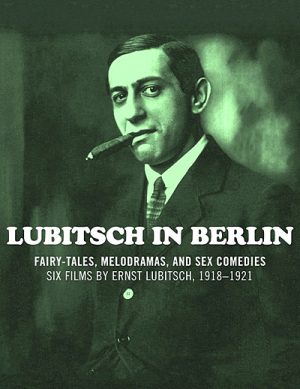
Ernst Lubitsch is a director best known for his years in Hollywood where he worked from 1923 until his death in 1947. In that time he made such classics as Trouble in Paradise (1932), Ninotchka (1939), The Shop Around the Corner (1940), the original To Be or Not to Be (1942) and the original Heaven Can Wait (1943) before his untimely death. Over the years he developed what became known as the Lubitsch Touch, an indefinable style that permeated through his films. That style gave a very European sensibility to his Hollywood films and accepted an intelligence from his audience. On the surface there is little of this in his early films that he made in Berlin until he emigrated to the USA. But it is there in the cheeky and mildly saucy humour that ran through all his films. Meanwhile, many critics have stated that you can’t understand Lubitsch without looking at and including the first part of his career.
Ernst Lubitsch in Berlin is a three-disc Blu-ray collection of some of his earliest surviving silent films. The set takes its name from a feature length documentary which is also included.
Included are the elegant contemporary comedies I Wouldn't Like to Be a Man (1918) and The Oyster Princess (1919), both starring the kittenish Ossi Oswalda, as well as the Arabian Nights extravaganza Sumurun (1919) in which he himself appears with Pola Negri, and the historical epic Anne Boleyn (1920), the most expensive German film of its day, starring Emil Jannings as Henry VIII. They're accompanied by Robert Fischer's excellent two-hour documentary, Ernst Lubitsch in Berlin.

3xBD50 | 1080p AVC | 580 min | 125 Gb + 3% rec
Language: German intertitles
Subtitles: English
Genre: Adventure, Comedy, Romance, Drama, Fantasy
Disc One:
Ich mochte kein Mann sein (I Don’t Want to Be a Man 1918. 45 min, 23 sec) is the story of a young woman who feels that her sex puts her at a disadvantage, so she decides to dress as a man, a sort of reverse Victor, Victoria (1982). However, she finds that life as a man isn’t as easy as she thought it was. Like a lot of Lubitsch films, the comedy comes from the transgression of social mores.
Die Puppe (1918. 1 hr. 05 min 23 sec) is a romantic fantasy. A young man is being forced to marry to carry on his family line. He flees at the thought until he meets The Doll Maker, who has constructed a mechanical doll. In some ways this could also be thought of as an early science fiction film.
Die Austernprinzessin (The Oyster Princess. 1919. 57 min 57 sec). Oyster-king Quaker, a personification of how Germans viewed Americans, is so rich he has servants to lift his teacup to his lips. Having everything in the world the only thing which will make things perfect is if his little girl marries a real prince.
Disc Two:
Sumurun (1920. 1 hr. 43 min 56 sec) is a costume drama, a sort of Arabian Nights which revolves around a sheik's infatuation with a dancing girl, two lovers who must fight for their love, with the help of the Sheik's harem. Oh, for good measure it throws in a lovelorn dwarf.
Anna Boleyn (aka Deception. 1920. 2 hr. 03 min 55 sec) is a historical drama revolving around the second wife of Henry VIII.
Disc Three:
Die Bergkatze (The Wild Cat. 1 hr. 25 min 41 sec) is another romantic comedy. This time it’s a convoluted plot involving Lieutenant Alexis and his will they, won't they romance between him and a robber woman Rischka and the local blushing virgin, Lilli.
Ernst Lubitsch in Berlin: From Schonhauser Allee to Hollywood (2006. 1 hr. 49 min 32 sec) is a documentary, written and directed by Robert Fischer which covers Lubitsch’s career from his beginnings as a bit part player in the Berlin theatre. It covers his transition to cinema and his eventual move to Hollywood. The documentary includes directors as well as Lubitsch’s daughter and granddaughter, with audio contributions from people no longer alive. I suggest if you do not know the director's work that you start her. It’s a very good documentary and offers a wide-ranging grounding in the director’s work.
Lubitsch.in.Berlin.MoC.BluRay1.U.part01.rar
Lubitsch.in.Berlin.MoC.BluRay1.U.part02.rar
Lubitsch.in.Berlin.MoC.BluRay1.U.part03.rar
Lubitsch.in.Berlin.MoC.BluRay1.U.part04.rar
Lubitsch.in.Berlin.MoC.BluRay1.U.part05.rar
Lubitsch.in.Berlin.MoC.BluRay1.U.part06.rar
Lubitsch.in.Berlin.MoC.BluRay1.U.part07.rar
Lubitsch.in.Berlin.MoC.BluRay1.U.part08.rar
Lubitsch.in.Berlin.MoC.BluRay1.U.part09.rar
Lubitsch.in.Berlin.MoC.BluRay1.U.part10.rar
Lubitsch.in.Berlin.MoC.BluRay2.U.part01.rar
Lubitsch.in.Berlin.MoC.BluRay2.U.part02.rar
Lubitsch.in.Berlin.MoC.BluRay2.U.part03.rar
Lubitsch.in.Berlin.MoC.BluRay2.U.part04.rar
Lubitsch.in.Berlin.MoC.BluRay2.U.part05.rar
Lubitsch.in.Berlin.MoC.BluRay2.U.part06.rar
Lubitsch.in.Berlin.MoC.BluRay2.U.part07.rar
Lubitsch.in.Berlin.MoC.BluRay2.U.part08.rar
Lubitsch.in.Berlin.MoC.BluRay2.U.part09.rar
Lubitsch.in.Berlin.MoC.BluRay2.U.part10.rar
Lubitsch.in.Berlin.MoC.BluRay3.U.part01.rar
Lubitsch.in.Berlin.MoC.BluRay3.U.part02.rar
Lubitsch.in.Berlin.MoC.BluRay3.U.part03.rar
Lubitsch.in.Berlin.MoC.BluRay3.U.part04.rar
Lubitsch.in.Berlin.MoC.BluRay3.U.part05.rar
Lubitsch.in.Berlin.MoC.BluRay3.U.part06.rar
Lubitsch.in.Berlin.MoC.BluRay3.U.part07.rar
Lubitsch.in.Berlin.MoC.BluRay3.U.part08.rar
Lubitsch.in.Berlin.MoC.BluRay3.U.part09.rar


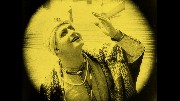
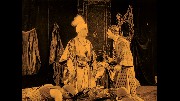
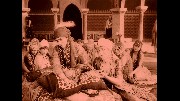
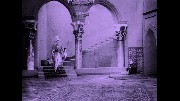
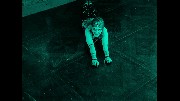

one masterpiece after another ... keep it up
Any chance for a reupload? Thanks in advance!
updated